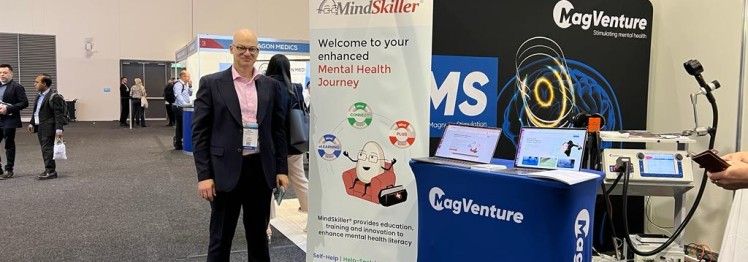The Importance of Safeguarding Patient Data: Insights from Dr Gary Galambos at RANZCP Annual Congress
Confidentiality and patient privacy have long been a fundamental principle in medical ethics, especially in the field of psychiatry. Psychiatrists must establish a rapport with patients by listening to their innermost thoughts and emotions - which often includes discussing relationships and memories of the most sensitive nature. The ultimate goal is to forge a bond of trust, enabling the psychiatrist to understand the patient's mental state and provide suitable treatments and intervention strategies. To achieve this, patients must feel assured and confident, knowing they are "in control of what is disclosed and who it is disclosed to," as The Royal Australian and New Zealand College of Psychiatrists (RANZCP or the college) explains.
As an accredited medical college representing psychiatrists and trainees in the region, the RANZCP is dedicated to driving progress and setting standards for psychiatric practice. The annual Congress organised by the college serves as a vital platform for raising awareness about the latest developments in the Australian healthcare industry - educating psychiatrists on innovative approaches to enhance mental health care. Patient well-being remains the central focus throughout these discussions, with privacy a key concern.
While it's no surprise that psychiatrists remain dedicated to safeguarding patient confidentiality, Australia's private health sector finds itself exposed to pervasive and systemic-level threats to the security of personal data. Dr Gary Galambos spoke on this issue at the annual RANZCP Congress in Perth, which ran from May 28th to June 1st, 2023.
Addressing an audience of practising psychiatrists and registrars in a symposium chaired by Associate Professor Jeffrey Looi, Dr Galambos explained how the increasing prevalence of US-style managed care will impede patient privacy in Australia. This healthcare delivery model, where insurers have significant influence over which doctor and hospital treat a patient, poses substantial risks to the quality of Australian healthcare. To provide a tangible example, Dr Galambos discussed a proposal submitted in 2020 by Honeysuckle Health (HH) and nib, outlining their intentions to form a buying group.
As a prominent critic of HH-nib's original submission to the Australian Competition and Consumer Commission (ACCC), Dr Galambos provided a comprehensive account of how the proposed collective contracting practices of the buying group could disrupt a clinician's treatment program. These medical-purchaser-provider agreements impose strict requirements, including the mandatory provision of patient data to the buying group. The implications of such data sharing are far-reaching, as the buying-group could make decisions regarding insurance coverage and offerings based on harvested behavioural and healthcare data.
"Rather than collect data and control access via healthcare providers, some private-health-insurers potentially might contact insured patients or the general public directly, asking them to provide healthcare data," Dr Galambos shares in his presentation. "Information might include exercise routines, sleep patterns, diet and other biometrics in return for certain bespoke healthcare services. In this case, consent could be as simple as downloading and signing on to a smartphone app or online service."
Private healthcare specialty groups like Aurora Healthcare and private health insurers like nib are already providing such online healthcare programs, Dr Galambos goes on to explain. Although these digital health treatment options offer convenience and accessibility, they also raise concerns, particularly around the access and handling of patient data. Here, companies like HH, which bills itself as a "health services and specialist data science company," have the potential to access sensitive personal data. A significant concern arises when healthcare professionals are not leading these organisations, as it may result in a lack of proper guidelines and controls for data handling.
Amidst the growing influence of managed care, mental health literacy platforms like MindSkiller® serve as necessary countermeasures, Dr Galambos concludes. Patients have the right to know where their data is being shared. And as an eLearning, training, and innovation platform founded by a psychiatrist, MindSkiller® is paving the way for digital mental health - ensuring that the collection and disclosure of personal data are carried out in the best interests of clinicians and patients alike.
